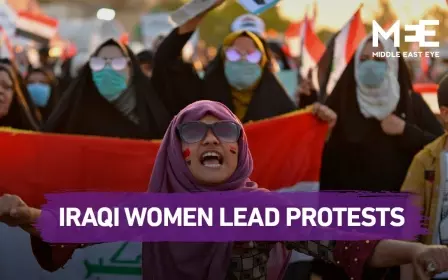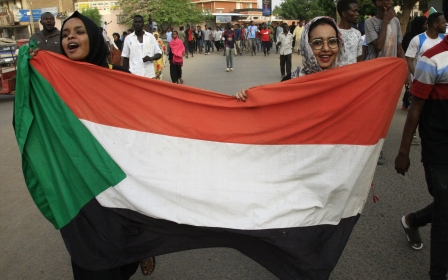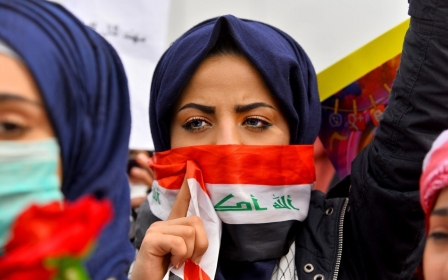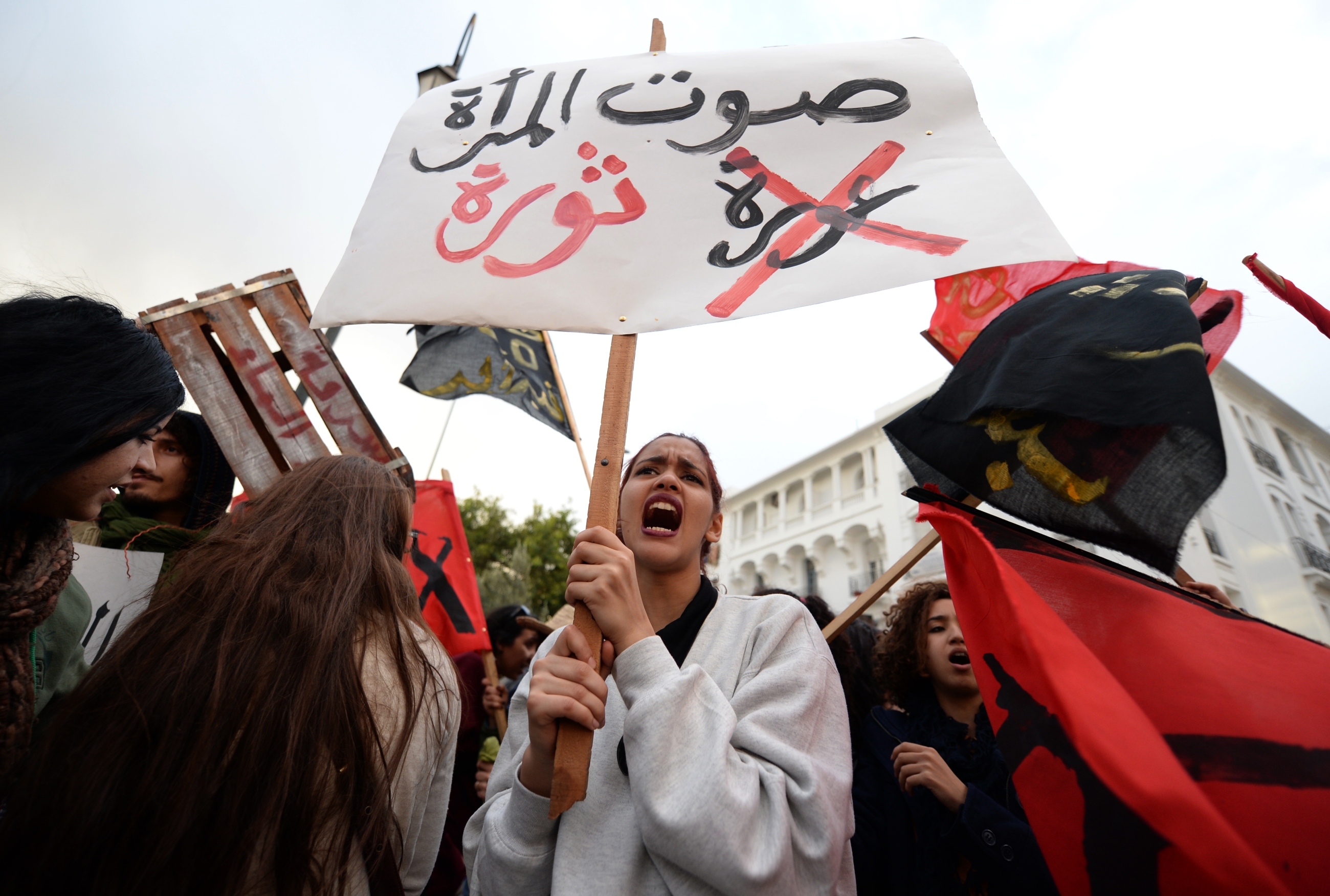
In pictures: The women driving protests across the Arab world
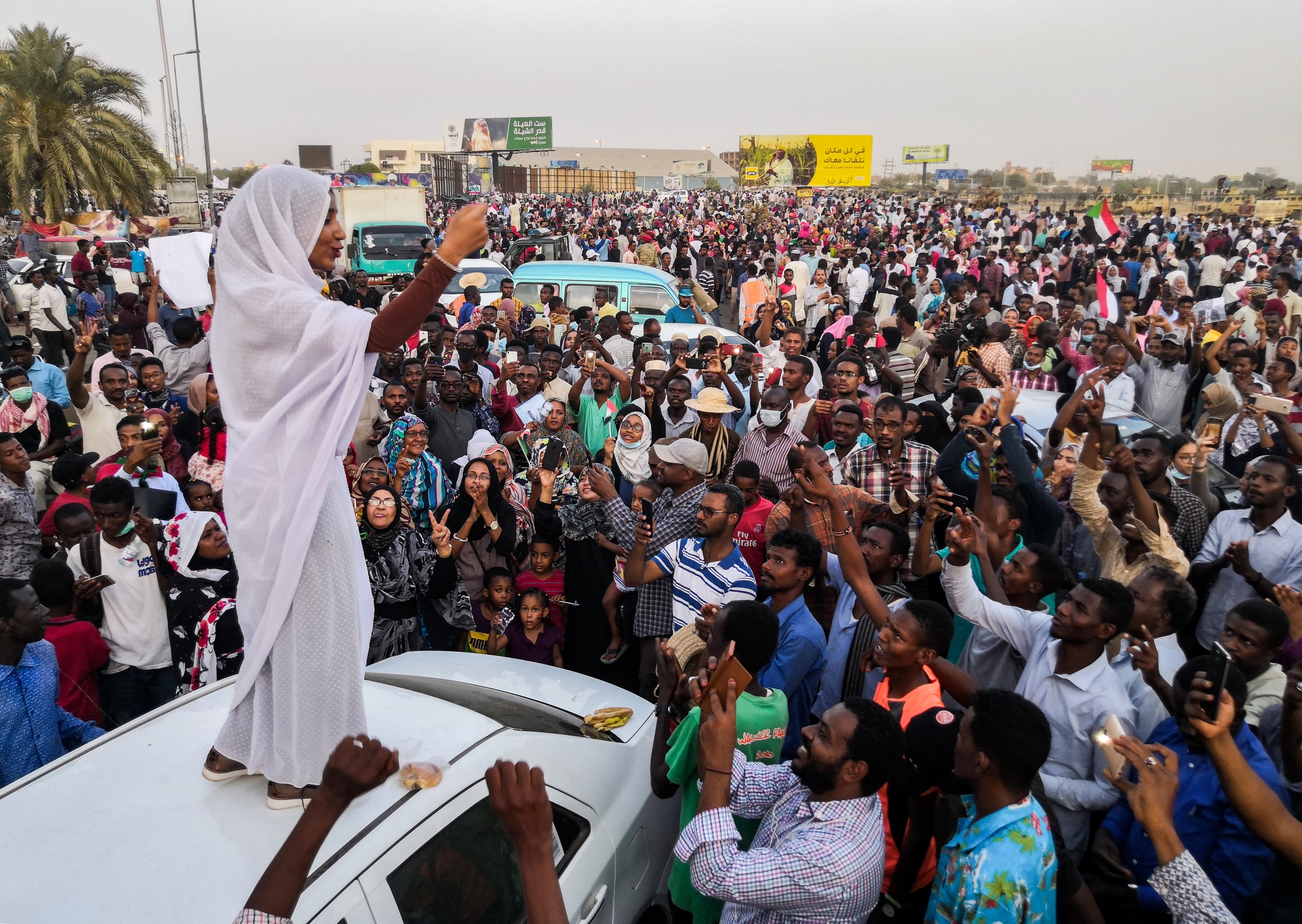
The image of Alaa Salah, a young Sudanese poet, addressing protesters standing on the roof of a truck went viral online in 2019 and she quickly became the symbol of the protest movement. Like Salah, Sudanese women played a major role in the popular mobilisation which called for the dismissal of former president Omar al-Bashir after 30 years in power. Protests began in December 2018 when Bashir’s government imposed emergency austerity measures in an attempt to stop the impending economic collapse. (Photo credit: AFP)
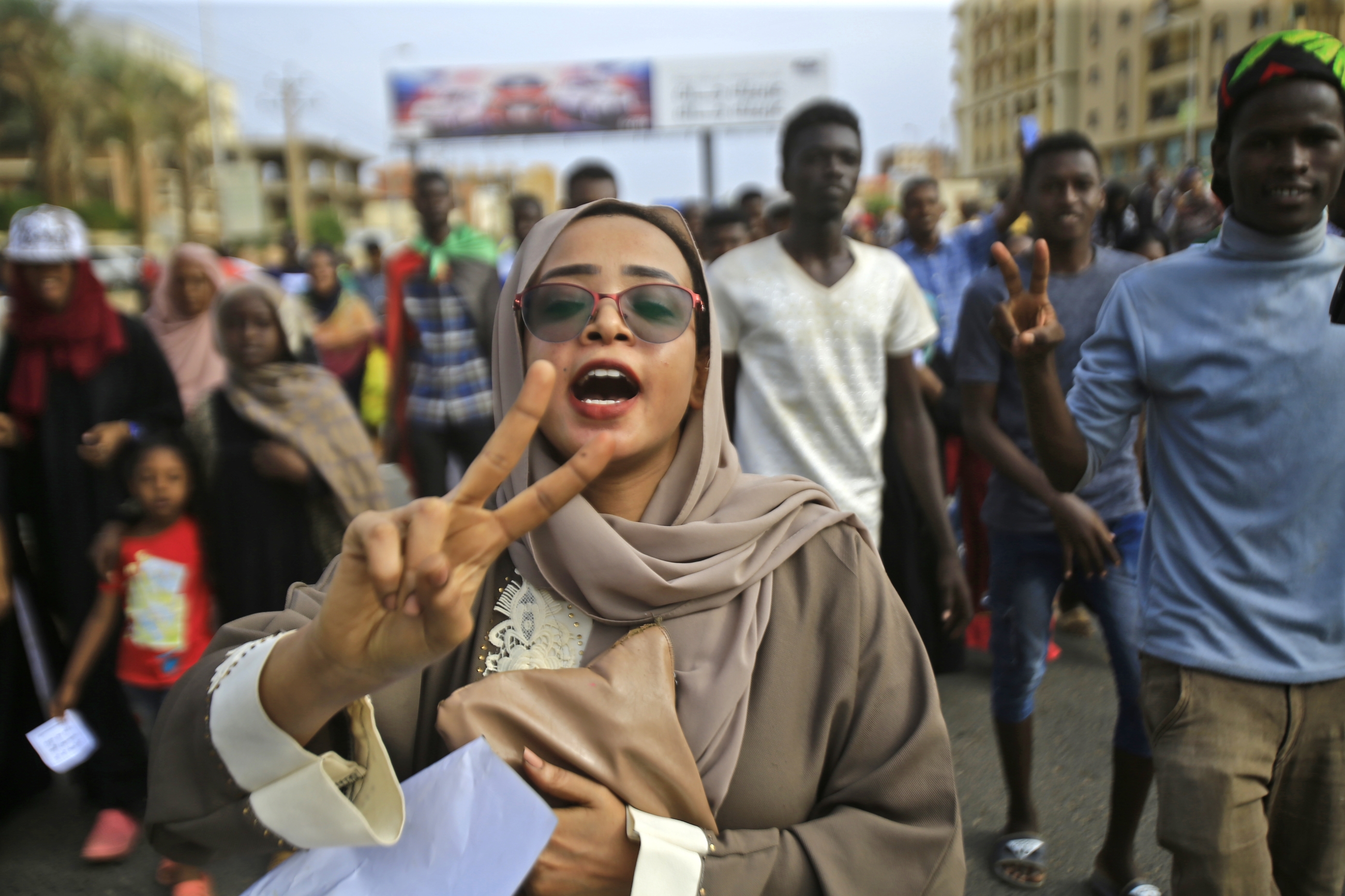
On 6 April, demonstrators occupied the square in front of the military's headquarters demanding the army to step in and force the president out. Five days later, the military announced that Bashir had been overthrown. However, the military soon turned on the peaceful demonstrations and security forces began to violently disperse the protesters resulting in the killing of over 100 demonstrators. Many women were also raped. (Photo credit: Ashraf Shazly/AFP)
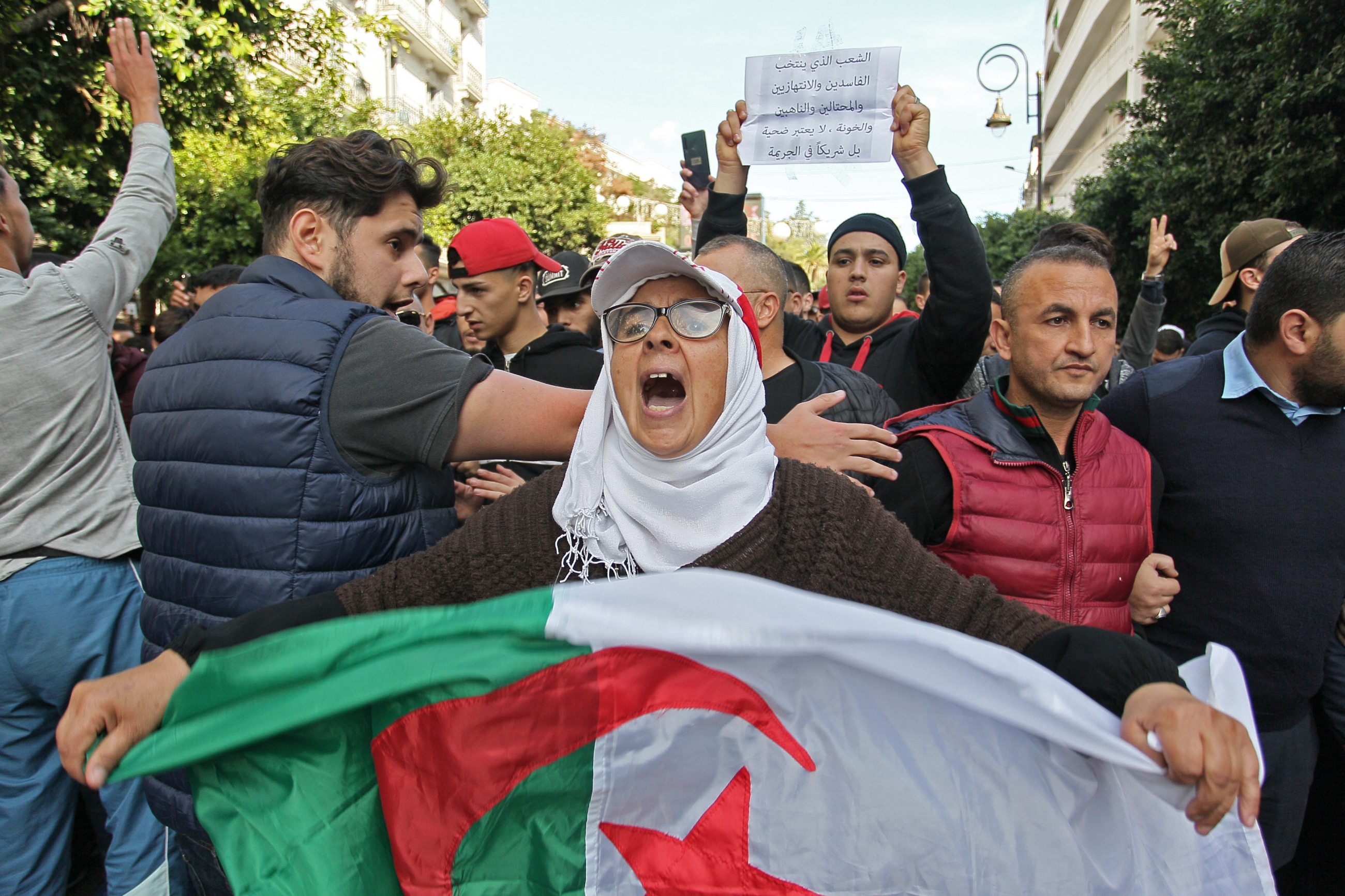
Algeria is no stranger to women being active agents of change and its history books are full of examples of female revolutionary figures who fought in the independence war. When protests broke out nationally on 22 February 2019 against ailing President Abdelaziz Bouteflika’s announcement that he would be seeking a fifth term in office, despite his deteriorating health, Algerian women once again adopted a central role in being actors of change. (Photo credit: Ryad Kramdi/AFP)
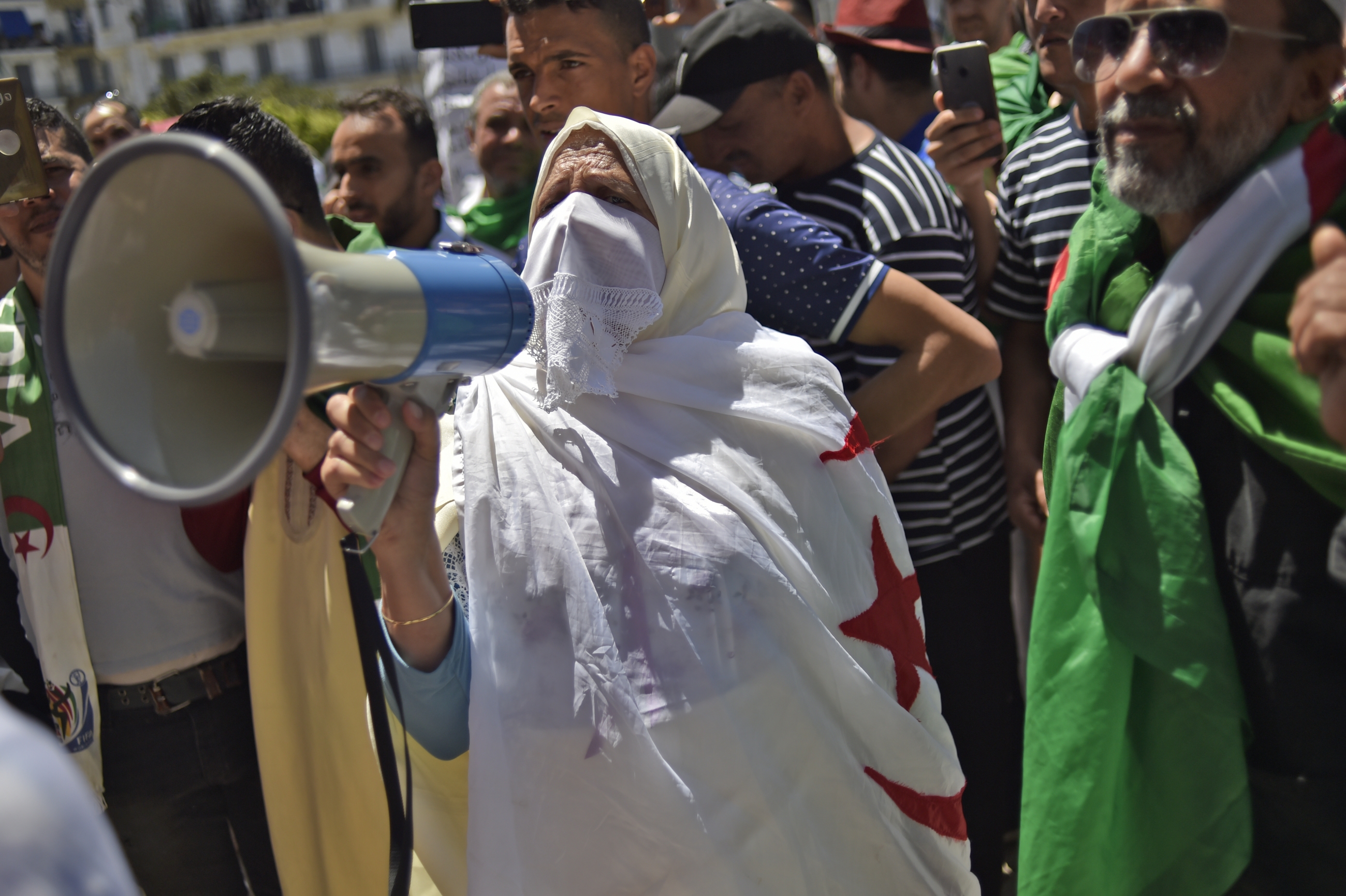
On 2 April, after the military’s chief of staff, Ahmed Gaid Salah, called for the president to step down due to incapacity, Bouteflika announced his resignation after 20 years in power. After a controversial election process in December, which saw a former prime minister under Bouteflika become president, Algerians have continued to protest every Tuesday and Friday for a democratic transition, free and fair elections and a new political system of governance. (Photo credit: Ryad Kramdi/AFP)
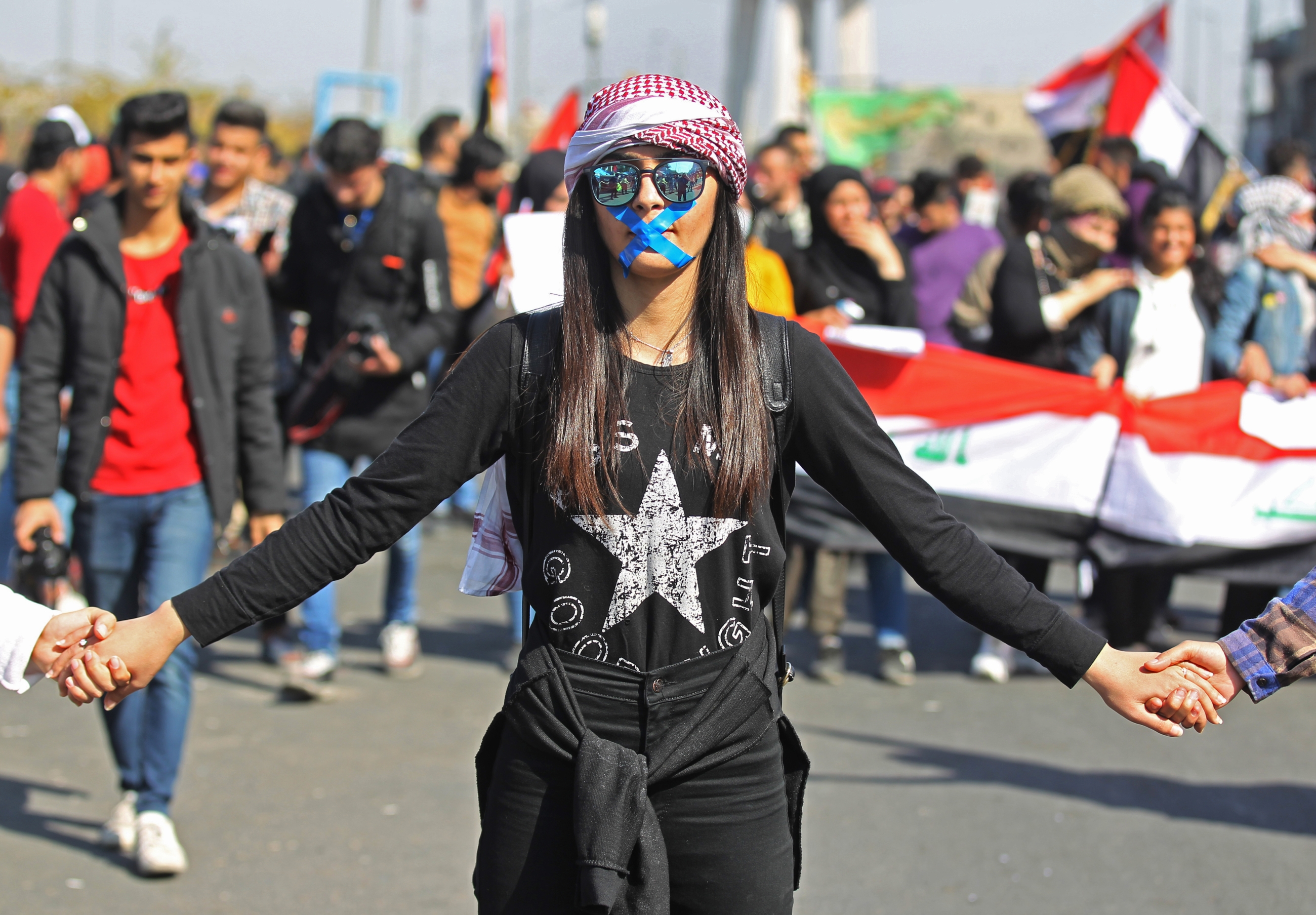
At the end of September 2019, Prime Minister Adel Abdul Mahdi demoted Iraq's popular counter-terrorism chief. In response to the measure, Iraqis took to the streets of the capital Baghdad and in the south of the country on 1 October to express anger at the ongoing corruption, high unemployment and foreign interference. At the forefront of these protests have been women, from students to housewives, who have embodied Iraq’s revolutionary spirit. (Photo credit: Ahmad al-Rubaye)
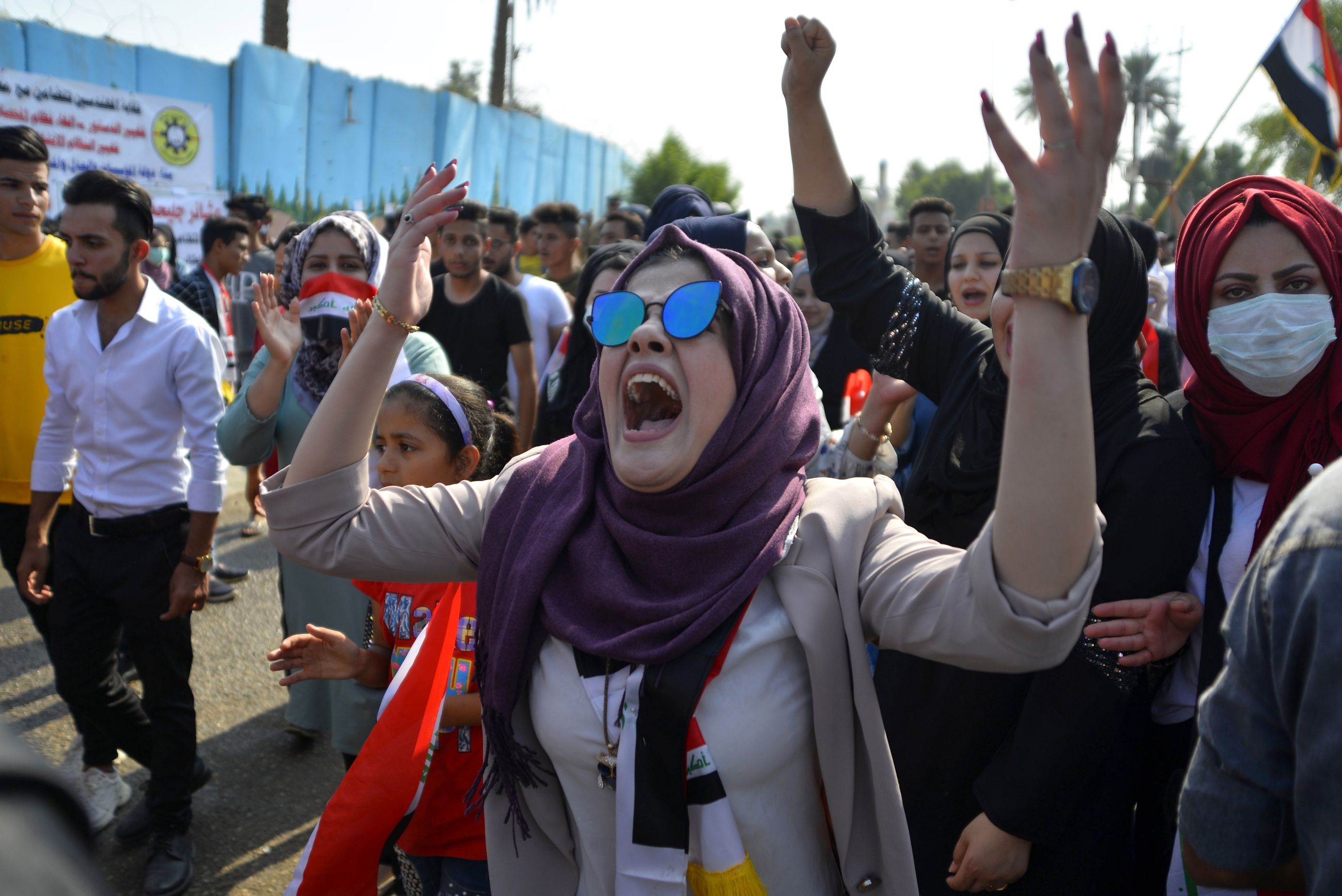
Despite the resignation of Prime Minister Adel Abdul-Mahdi in response to the protests and the increase in coronavirus cases, Iraqis have continued to mobilise calling for an independent figure to take up the new PM post. A violent crackdown by security forces in response to the continued protests, as well as violence from supporters of powerful cleric Moqtada al-Sadr, has seen hundreds of Iraqis killed and thousands injured. (Photo credit: Haidar Hamdani)
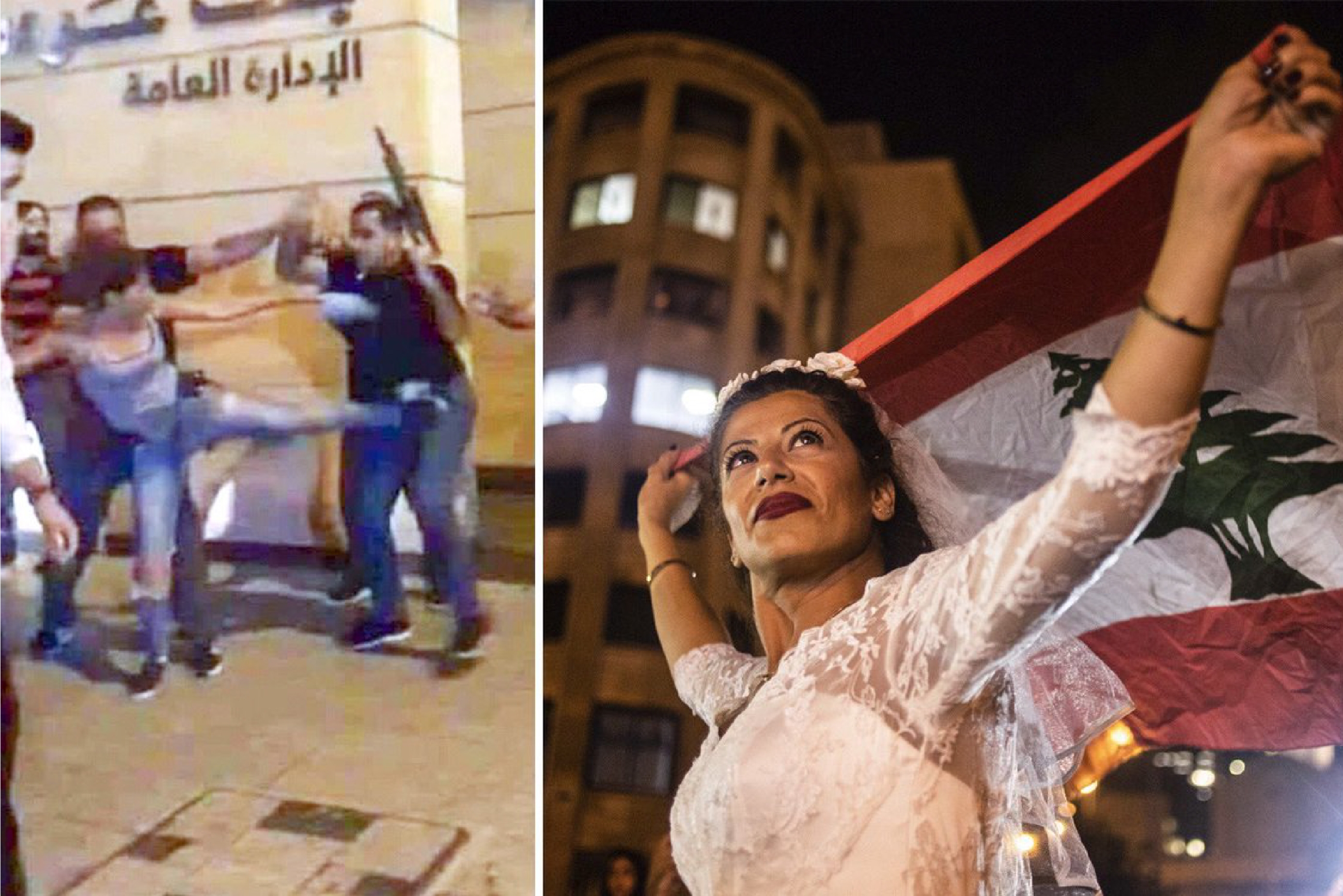
Lebanese activist Malak Alaywe Herz became an icon after kicking a bodyguard of a Lebanese minister in the groin when protests broke out on 17 October after the government announced controversial new tax measures on WhatsApp and other messaging apps. Hailed for her “bravery”, Malak Alawiye will face trial later this year but her spirit has been embodied by thousands of Lebanese who want to see the country's corruption end. She got married during a protest. (Twitter)
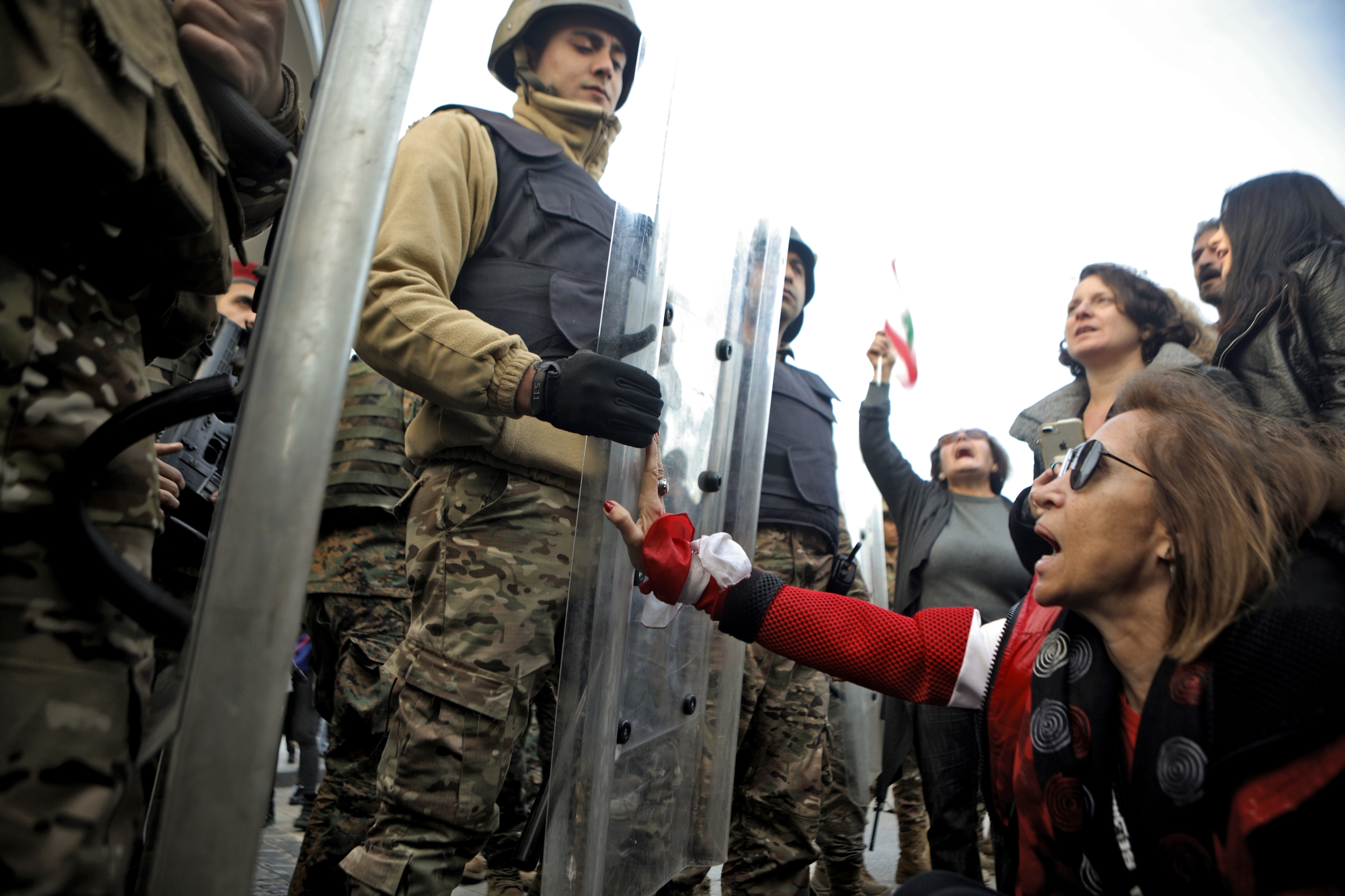
Lebanese from all religious backgrounds and sectors of society have mobilised across Lebanon to denounce the country’s corrupt leadership and to call for social and economic reforms. After two weeks of protests, Saad Hariri resigned as prime minister and university professor Hassan Diab was selected to replace him. A new cabinet announced in January provoked clashes between protesters and security forces preventing them from mobilsing outside parliament resulting in hundreds being injured. Two people have died since protests first broke out. (Photo credit: Patrick Baz)
Middle East Eye delivers independent and unrivalled coverage and analysis of the Middle East, North Africa and beyond. To learn more about republishing this content and the associated fees, please fill out this form. More about MEE can be found here.


